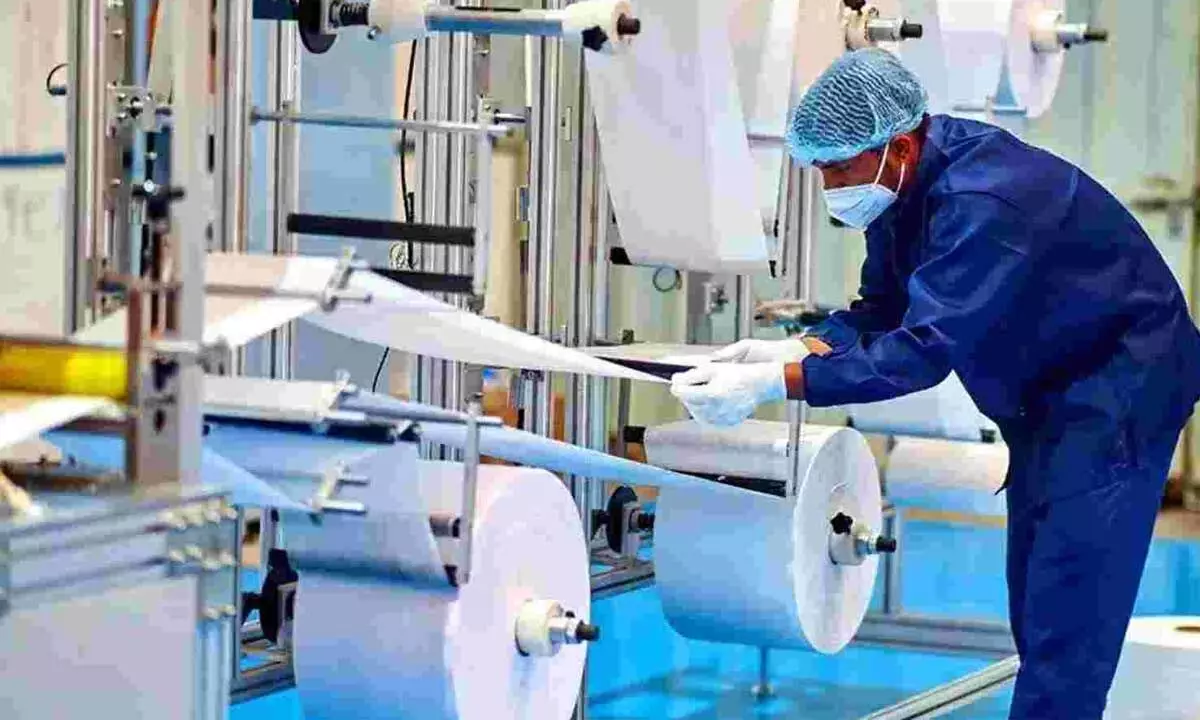Decision to upgrade 420 MSME pharma units under PTUAS needs a review

Decision to upgrade 420 MSME pharma units under PTUAS needs a review
When about 4,500 MSMEs are remaining outside the purview of WHO-GMP certification, this number is too small, that too for such a long period (until 2026)
Aimed at supporting the existing pharmaceutical clusters and MSME pharmaceutical companies across the country to improve their productivity, quality, and sustainability, the central government had recently launched the 'Strengthening of Pharmaceutical Industry' (SPI) scheme with a total financial outlay of Rs500 crore for the period of financial year 2022-26. The scheme will provide financial assistance to pharmaceutical clusters for the establishment of common facilities.
It will improve the quality and ensure the sustainable growth of these clusters. Under the scheme, the Central government will provide financial assistance to pharmaceutical clusters for creation of common facilities to improve the quality and ensure sustainable growth of pharmaceutical clusters in the country. The scheme is further intended to upgrade the production facilities of MSMEs to meet national and international regulatory standards, through interest subvention or capital subsidy. MSMEs contribute 70 per cent to India's pharmaceuticals exports. The new scheme will also promote knowledge and awareness in and about the pharmaceutical and medical devices industry by taking up studies, building databases and bringing in experts from various fields to share knowledge.
The new scheme SPI has combined the three existing schemes for the development of pharmaceutical industries in the country. The three existing schemes include Assistance to Pharmaceutical Industry for Common Facilities (APICF) to strengthen existing pharma cluster capacity through common facilities; Pharmaceutical Technology Upgradation Assistance Scheme (PTUAS) for MSMEs with proven track record to meet national and international regulatory standards; and Pharmaceutical and Medical Devices Promotion and Development Scheme (PMPDS) to conduct study/survey reports, awareness programmes, creation of database and promotion of industry - as its components.
The Indian pharmaceutical industry is the world's third largest by volume and 14th largest in terms of value. And India has the second-highest number of US FDA approved plants outside the US. Indian pharma exports witnessed a growth of 103 per cent since 2013-14, from Rs 90,415 crore in 2013-14 to Rs 1,83,422 crore in 2021-22. The exports achieved in 2021-22 is the pharma sector' best export performance ever. In India, 1235 MSMEs have WHO GMP certification out of 6000 MSMEs.
The country wanted to further increase quality export. Under this background, launch of SPI scheme is significant as it envisages technology upgradation, setting up of common research centres and effluent treatment plants in clusters for the pharma MSMEs which will help them improve their product quality and increase export. However, the Department of Pharmaceuticals (DoP), under the Union Ministry of Chemicals & Fertilisers, has now set a target of providing financial assistance of Rs 10 crore each to only 420 MSME pharma manufacturing units under the PTUAS to meet national and international regulatory standards by upgrading their facilities to Schedule M or WHO GMP standard.
Besides, the DoP will create common infrastructure facilities for strengthening of 10 MSME pharma clusters across the country under APICF. PTUAS, APICF and PMPDS are part of SPI Scheme rolled out by the Union Ministry of Chemicals & Fertilisers recently.
Naturally, the DoP's decision to provide financial assistance of Rs 10 crore each to only 420 MSME pharma manufacturing units under the PTUAS has come in for severe criticism. The Department Related Parliamentary Standing Committee (DRSC) on Union Ministry of Chemicals & Fertilisers has asked the DoP to review its target of upgrading just 420 MSME pharmaceutical units by the year 2026 under PTUAS, when almost 4,500 units remain outside the purview of World Health Organisation's (WHO) Good Manufacturing Practices.
Of course, the government has come out with the SPI scheme to support the creation of pharma clusters for growth by creating common facilities like R&D labs, testing centres, effluent treatment plants, logistic centres, training hubs and other allied activities. But, it is really surprising to note that only a small number of MSMEs have been taken up for upgradation that too up to the year 2026.
When about 4,500 MSMEs are remaining outside the purview of WHO-GMP certification, this number is too small, that too for such a long period. The government should review the target of upgrading just 420 MSMEs by the year 2026 and increase this figure and should try to decrease the time period involved in the process. The remaining 4,500 MSMEs should also be upgraded to WHO-GMP certification at the earliest.
(The author is freelance
journalist with varied experience
in different fields)

